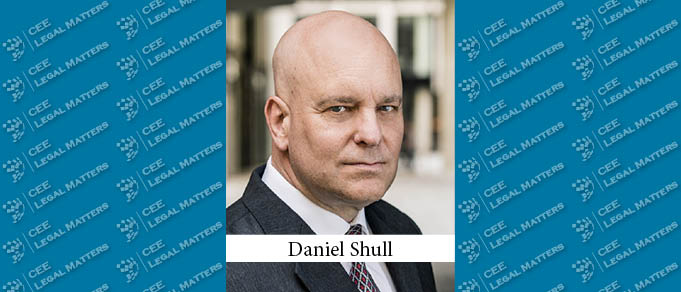On May 26, 2020, CEE Legal Matters reported that NKO Partners had advised Dr.Max, the largest pharmacy network in Central Europe, on a public-private partnership project involving the concession of 27 state-owned pharmacies in the City of Krusevac and the Rasina District of Serbia. We reached out to Daniel Shull, CEO of Asterfarm (Dr.Max Serbia), for more information about the project.
CEELM: To start, tell us a few words about Dr.Max and its operations in Serbia.
Daniel: Dr.Max is the leading pharmacy chain in Central Europe. We operate approximately 2200 pharmacies and 2 major wholesale operations in six countries. Additionally, we are a leading producer of OTC and nutritional products in the region, producing around 800 products in our private label and exclusive ranges. In Serbia, prior to the Krusavec PPP, we were operating 126 retail pharmacies and a galenic laboratory in which we employed approximately 600 people. Dr.Max is committed to improving the quality and accessibility to healthcare in all of the markets in which we operate. Our driving business philosophy is thus combining top-quality healthcare services with fair prices in a modern and attractive environment. We invest significantly in the training of our employees and are proud to support the local communities in which we operate.
CEELM: Congratulations on winning the concession! What do you believe were your company's unique advantages in the bid?
Daniel: Due to our buying power and operational efficiencies, we are able to generate a higher level of profit than many of our competitors in the Serbian market (assuming of course that they are operating within the boundaries of the law). This obviously allowed us to enter a competitive bid and win the tender. Even at the level we bid, we are confident that we will be able to invest in significantly improving the conditions of the pharmacy locations, thus providing safe and attractive pharmacies for both the citizens of the Rasina district and our employees, and still earn a reasonable return on our investment. The city of Krusavec was responsible and wise in setting rather high minimum requirements for participating in the tender. This ensured that the pool of potential bidders was limited to professional companies such as ourselves and our largest competitors, who are able to calculate attractive bids whilst ensuring that they will be able to finance necessary investments in the pharmacies and staff. This is not always the case. We have experienced tenders in Serbia with no minimum requirements, where small players have made simply ridiculously high bids. One tender in particular comes to mind that we lost. We bid against another major competitor and a very small chain. The winning small chain entered a bid 90% above ours and 70% above the bid of the other large player. The small chain has simply taken on the staff and left the main pharmacy in the poor condition that it was under state management, and it has not reopened the remaining small pharmacies which were part of the agreement. Even though the city has a short-term financial gain, the result is not a win for the local citizens and I question the mid-term economic viability of the agreement, as the financial strain on this small chain will likely be too much for them bear. Contrast this example to the investment we are currently making in the Krusavec pharmacy network or the impressive work one of our major competitors has done in Novi Sad, and it should be clear that local governments which want the best results for the health care of their citizens will set high minimum standards for participation in future pharmacy PPPs.
CEELM: The PPP project involves 27 state-owned pharmacies located in the City of Krusevac and the Rasina District of Serbia. Was there anything in particular about these regions that you found attractive or was it simply a matter of an opportunity you couldn't pass on when it arose?
Daniel: Expanding our presence in Rasina was a logical geographical move. We have very successful pharmacies and a good presence in the regions bordering Rasina. Increasing our presence in Rasina was thus essentially adding the next piece of the puzzle. Additional factors were: 1) the outstanding locations of many of the pharmacies; 2) the good impression that the employees made on us; and 3) the very professional manner and approach taken by the city of Krusavec.
CEELM: What was, in your view, the most complex aspect of setting up this PPP?
Daniel: The structure of the contract was very complex and did not fully reflect the basic protections that any business making such a major investment would normally require. Many of the contractual definitions were very "grey" and unclear and needed to be revised prior to signing. I would hope that the final contract and the process will be used as a template for future PPPs in Serbia.
CEELM: Why did you select NKO to advise you on this project and what, specifically, was the firm's mandate?
Daniel: We had a good experience working with NKO on several smaller projects in the past. The high level of professionalism and the dedication shown to supporting our needs were the key criteria in making the decision to contract NKO for this project. They had a very wide mandate that supported us essentially in all non-financial elements of planning the offer and agreeing on the final contract. NKO's support was critical in identifying potential legal risks and in negotiating mutually acceptable solutions.





